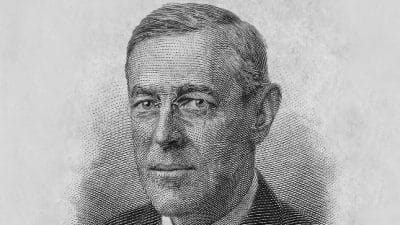
[email protected]
I’m trying to make sense of why Senate Republicans have filibustered legislation that would rein in market speculators who have helped drive up the price of oil well beyond natural supply-and-demand forces.
They do understand that it’s an election year, right? And that taking the side of Big Oil in this $4-a-gallon era is probably not among the smarter political moves?
“When this Congress voted to go into Iraq in 2002, oil was $24 a barrel. It was recently above $145 a barrel. No one would try to claim that demand has gone up six times in the last six years or that supply has been reduced to that extent. The oil speculators are out of control, in a market that was not designed for large-scale speculation. We could have fixed that with this legislation,” Sen. Jim Webb, D-Va., said today.
Some analysts are placing the impact of unregulated offshore speculation at 30 percent to 50 percent of the price that we’re paying at the pump. AAA has the average price of a gallon of regular unleaded at $4.01 today, meaning anywhere from $1.20 to $2 a gallon could come off the top if loopholes in the federal law could be closed. I don’t know about you, but to me paying $2.80 or even $2 a gallon makes me feel a lot better than paying $4.01 a gallon.
And why did Senate Republicans block the measure from getting a vote? Would you believe that it was because they wanted to advance a measure expanding domestic drilling that the Bush administration’s own Department of Energy has said wouldn’t have an impact on gas prices in the U.S. until 2030?
“We are not leaving, we are not giving up. We can tear down these walls that prohibit domestic energy production here in America,” Texas Republican John Cornyn said. Which is interesting, in Webb’s view, since “even many of the top oil company executives agree that oil market supply and demand are the same as when oil was $60 a barrel. In fact, Exxon Mobil’s senior vice president recently said that the price of oil should be about $50 to $55 a barrel,” Webb said.
Oil was being traded at the rate of $145 a barrel last week, but closed yesterday at $125.49 a barrel. That’s five times what it was when the U.S. invaded Iraq in 2002, fueling the speculative bubble made possible by a loophole pushed through the Republican Congress in 2000 in the waning days of the Clinton administration in the period between the controversial 2000 presidential election and the inauguration of President Bush that has been called the “Enron loophole” because it ended up benefitting the now-defunct energy trader.
“This legislation was designed as a necessary first step to correct a practice that has been both costly and unfair to American consumers, before we begin to address these other issues,” said Webb, who hopes to see the Senate reconsider the oil-speculation issue, and soon. “We should not let this issue slide off the legislative calendar simply because of the recalcitrance of the other side. It is too important to American consumers,” Webb said.










